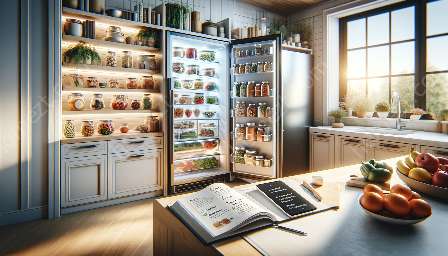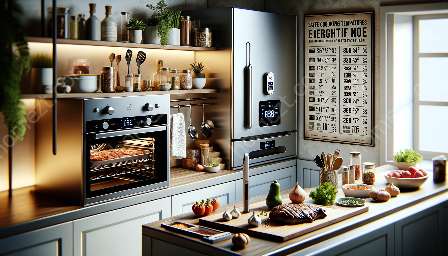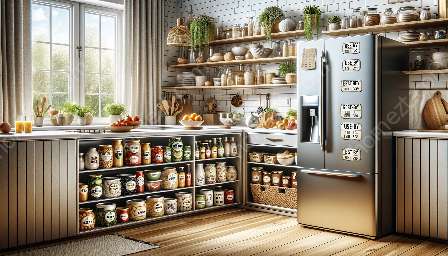When it comes to maintaining food safety in home kitchens, refrigeration plays a crucial role in preserving food quality and preventing foodborne illnesses. Proper refrigeration practices not only promote home safety and security but also protect the health of your family. In this comprehensive guide, we will explore the impact of refrigeration on food safety, best practices for refrigerating food at home, and important tips for maximizing the benefits of refrigeration in your kitchen.
The Significance of Refrigeration in Food Safety
Refrigeration serves as a powerful tool in inhibiting the growth of bacteria, mold, and yeast, which are primary culprits behind food spoilage and foodborne illnesses. By maintaining a consistently cold temperature, typically around 40°F (4°C) or below, refrigeration slows down the microbial activity that can lead to food contamination and deterioration. This not only extends the shelf life of perishable foods but also safeguards against the proliferation of harmful pathogens, ensuring that the food you serve to your family is safe and wholesome.
Preserving Food Quality with Proper Refrigeration Practices
Proper refrigeration practices are essential for preserving the quality and freshness of foods in home kitchens. When perishable foods are left at room temperature for extended periods, they become susceptible to spoilage, compromising their taste, texture, and nutritional value. Refrigeration helps maintain the sensory attributes of foods, such as flavor, color, and aroma, while also retaining their essential nutrients. By promptly refrigerating perishable items like dairy products, meats, and leftovers, you can significantly reduce the risk of food spoilage and promote a higher standard of food safety in your home.
Best Practices for Refrigerating Food at Home
Adhering to best practices for refrigerating food at home is critical for upholding food safety standards. It's important to store perishable foods, such as raw meat, poultry, seafood, eggs, and dairy products, in the refrigerator promptly after purchasing or preparing them. Additionally, maintaining a well-organized refrigerator with proper storage techniques, such as using airtight containers and labeling items with dates, can help minimize cross-contamination and ensure the optimal preservation of food. Regularly monitoring and maintaining the temperature of your refrigerator, as well as adhering to expiration dates, are also integral to safe food storage practices at home.
Maximizing the Benefits of Refrigeration in Your Kitchen
To maximize the benefits of refrigeration in your kitchen, it's essential to approach food storage with a proactive mindset. This includes proper meal planning, utilizing the refrigerator's storage capacity effectively, and employing rotation strategies to use older items before newer ones. By embracing a waste-reducing approach to food management, you can make the most of your refrigerator's capabilities while minimizing food spoilage and waste. Furthermore, investing in appliances, such as refrigerators with advanced temperature control and humidity regulation features, can further enhance the effectiveness of refrigeration in promoting food safety and home security.
Conclusion
In summary, refrigeration plays a pivotal role in ensuring food safety in home kitchens, serving as a cornerstone of home safety and security. By understanding the significance of refrigeration in preserving food quality, following best practices for refrigerating food at home, and maximizing the benefits of refrigeration in your kitchen, you can safeguard the well-being of your family and enjoy peace of mind knowing that the food you serve is safe, fresh, and nourishing.

























